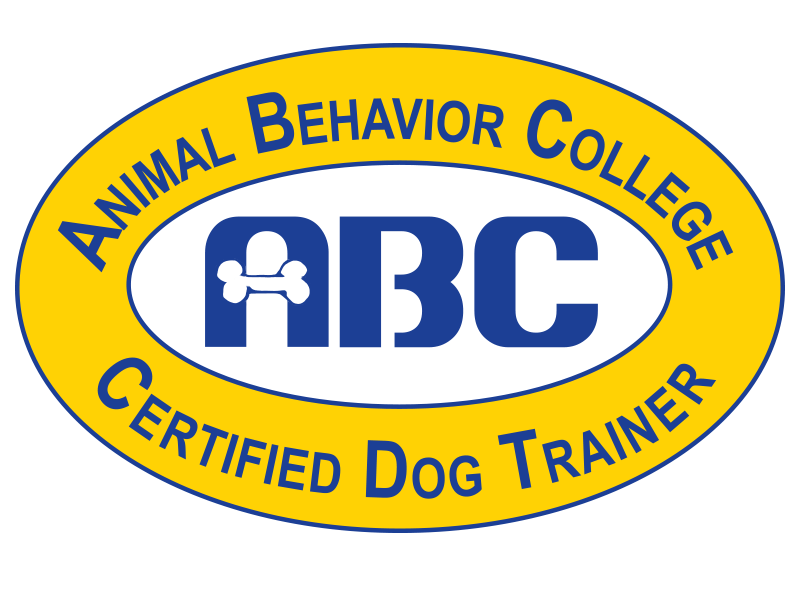Adopting a Shelter Dog What to Expect and How to Prepare
Adopting a shelter dog is a decision brimming with compassion and hope, promising to bring love and joy into your household. However, it also requires thorough preparation and understanding to ensure a smooth transition for both the dog and your family.

Bringing a shelter dog into your life is a delightful yet challenging commitment. This comprehensive guide delves into the adoption process, the essential preparatory steps for your home, and what to expect when welcoming a shelter dog into your family.
Finding The Right Dog Shelter
Embarking on the journey of adopting a shelter dog begins with the adoption process itself. Shelters house dogs of various breeds, ages, and backgrounds. Step one involves researching these shelters to identify ones with positive reputations and philosophical alignments with your values. Different online platforms and local community recommendations can aid in this research. Once you select a shelter, visiting it is essential. Interacting with dogs firsthand gives you a better sense of their personalities and needs.
When visiting a shelter, remember that dogs may not show their true colors immediately. Shelter environments can be stressful, causing dogs to act differently than they would in a home setting. Spend time observing the dogs, asking the shelter staff about their backgrounds, behavioral traits, and health issues. Many shelters offer meet-and-greet sessions where potential adopters can spend time with the dogs in a controlled environment, helping gauge compatibility.
After selecting a dog, the adoption process typically involves filling out an application, which can be pretty detailed. The shelter ensures that potential adopters understand the responsibilities and are a good match for the dog. The application may include questions about your lifestyle, living situation, previous pet experience, and how you plan to care for the dog. Some shelters also conduct interviews and home visits as part of their vetting process.
Preparing Your Home
Preparing your home for the arrival of a new canine family member is paramount. This preparation begins with creating a safe, welcoming environment. Start by securing your home. Identify and eliminate hazards, such as small objects that could be swallowed, toxic plants, or exposed electrical cords. Ensure your yard is secure if you have one, checking for gaps or holes in fencing where a curious dog could escape.
Creating a designated space for your new dog is equally important. This area should be quiet, comfortable, and away from high-traffic zones in your home. Equip this space with essentials: a bed, water, food bowls, toys, and treats. This space will serve as a sanctuary for your dog, where it can retreat and feel safe. It's crucial for your new dog to have a personal area where it can decompress and feel secure as it acclimates to its new surroundings.
When setting up your home, consider your new dog's dietary needs and feeding routines. Researching high-quality dog food and establishing a regular feeding schedule can help regulate their digestive system and create a sense of routine. Some dogs might have specific dietary restrictions or preferences, so take note of any recommendations from the shelter and be ready to consult a veterinarian for personalized advice.
Gathering the necessary supplies is vital in addition to preparing your home. Essentials include a sturdy leash and collar, identification tags containing your contact information, grooming supplies, and waste bags. These items ensure that you are ready to handle basic care, hygiene, and outdoor activities with your new dog. Additionally, microchipping your dog provides an extra layer of security in case it ever gets lost.
The day you bring your shelter dog home is filled with excitement, but it's essential to approach it with patience and calm. The transport itself can be stressful, so having a companion to help can make the journey smoother. Upon arrival, allow your dog to explore their new home at their own pace. Keeping interactions gentle and positive will help reduce anxiety. It's natural for your dog to be nervous or overwhelmed, so give them time and space to settle in.
Introducing Your New Dog To Your Family
Integrating your shelter dog into your family requires a gradual approach. Introducing everyone in a controlled and supervised setting is crucial for households with children or other pets. Teach children to interact gently and respect boundaries. Similarly, gradual introductions with other pets, using neutral spaces, can help prevent territorial behavior and foster harmonious relationships.
During the initial days, routine and structure are your greatest allies. Dogs thrive on predictability, which helps establish a sense of security. Set a schedule for feeding, walks, and potty breaks, and stick to it as closely as possible. Consistent routines help your dog understand what to expect, reducing anxiety and facilitating quicker adaptation to their new environment.
Training is another essential aspect during these early stages. Positive reinforcement works best, rewarding desired behaviors with treats, praise, or affection. Basic commands such as sit, stay, and come are foundational, fostering communication and ensuring safety. Enrolling in professional training classes can provide additional support and help strengthen the bond between you and your dog.
However, dog training isn't only about commands and obedience. It encompasses socialization, which is crucial for a well-adjusted dog. Expose your dog to different environments, people, and other animals gradually and positively. Controlled interactions help your dog learn to behave appropriately in various situations, reducing the likelihood of fear or aggression. Socialization also mitigates anxiety, making everyday activities more enjoyable for you and your dog.
Expect an adjustment period where your dog might display behaviors stemming from their past experiences or stress. Common challenges include house training accidents, chewing, or barking. Patience is vital; understand that these behaviors are typical as your dog acclimates to their new environment. Address issues with consistent training and positive reinforcement rather than punishment, which can exacerbate fear and confusion.
Building a bond with your shelter dog is an ongoing process. Spend quality time together through activities like walks, playtime, and relaxed moments of petting and affection. Each dog is unique, and discovering what they enjoy strengthens your relationship. Be observant and responsive to your dog's cues and preferences, facilitating a more profound understanding between you.
Routine veterinary care is fundamental to maintaining your dog's health and well-being. Schedule an initial vet visit soon after adoption to ensure your dog is healthy and to establish a vaccination schedule. Regular check-ups, dental care, preventive measures like flea and tick treatments, and heartworm prevention are vital aspects of responsible pet ownership. Your veterinarian can also guide your shelter dog on any specific health concerns or needs.
The emotional rewards of adopting a shelter dog are immeasurable. You provide a second chance to an animal in need, and in return, they offer unwavering companionship and love. The transformation from a wary, possibly scared shelter dog to a happy, confident pet is profoundly fulfilling. Witnessing your dog's personality bloom as they feel secure and loved in their new home is one of the most heartwarming experiences a pet owner can have.
Additionally, adopting a shelter dog underscores the value of rescue efforts. It highlights the importance of giving these animals a home, reducing shelter overpopulation, and curbing the demand for commercial breeders where inhumane practices can occur. Your act of adoption contributes to the broader effort of animal welfare and advocacy.
Throughout this journey, anticipation of challenges is realistic, but success lies in preparedness, patience, and commitment. Celebrate the milestones, big and small—from the first time your dog responds to your name to their relaxed nap in the sun-filled corner of your living room. Each moment marks progress and deepens the bond between you.
Remember, adopting a shelter dog exemplifies dedication to enriching life in need and enhancing your own with the joy and companionship that only a dog can bring. This commitment, while demanding, is ultimately one of the most rewarding endeavors. The foundation of this journey lies in mutual trust and understanding, creating a harmonious living environment where you and your dog can thrive together.
As you navigate the initial adjustment period, be mindful of your dog's body language and emotional state. Shelter dogs often come with unknown histories, which may include trauma or neglect. Understanding their signals, such as tail position, ear movement, and vocalizations, enables you to respond appropriately, ensuring they're comfortable and not pushed beyond their limits. Gradually introducing new experiences, whether walking in the park or meeting a new friend, helps build positive associations and fosters confidence in your dog.
It's also essential to address any behavioral issues with empathy and consistency. Consult with a professional dog trainer or behaviorist if you encounter persistent challenges. They can provide expert guidance tailored to your dog's specific needs, helping you implement strategies that encourage desired behaviors and discourage problematic ones. Remember, progress may be slow, and setbacks are normal. Approach each day patiently and celebrate the small victories that signify growth and adjustment.
Proper Care for Your Dog
Your involvement in your dog's life extends beyond the home environment. Regular physical activity is crucial to their well-being. Daily walks, play sessions, and interactive toys stimulate your dog mentally and physically. Engaging in activities such as obedience training, agility, or even simple games like fetch can strengthen your bond and provide necessary exercise. Each dog has unique energy levels and preferences, so tailor activities to their needs.
Nutrition plays a vital role in your shelter dog's health. High-quality dog food, appropriate portions, and regular meal times improve their well-being. Monitor your dog's weight and adjust feeding as needed to ensure they maintain a healthy physique. If your dog has specific dietary requirements or health issues, consult your veterinarian for guidance on the best food choices and nutritional supplements.
Grooming is another aspect of care that enhances your dog's quality of life. Regular brushing, bathing, nail trimming, and dental care not only keep your dog looking and feeling good but also promote hygiene and prevent health issues. Depending on your dog's coat type, schedule professional grooming sessions to handle more extensive needs, such as trimming or specialized coat care.
Socialization remains a continuous process throughout your dog's life. Arrange playdates with other dogs, attend dog-friendly events, and explore new environments to ensure your dog remains well-adjusted and comfortable in various settings. Positive social experiences reduce the likelihood of behavioral issues and contribute to a balanced, happy demeanor.
Incorporating mental enrichment activities, such as puzzle toys, training sessions, and scent games, can also significantly benefit your dog's overall well-being. Mental stimulation is just as important as physical exercise, helping to keep your dog intellectually engaged and prevent boredom-related behaviors. These activities cater to your dog's innate curiosity and provide opportunities to use their natural instincts, fostering a fulfilling life.
As you continue nurturing your bond, you'll notice the trust and loyalty that naturally develop between you and your new family member. Engage in activities that both you and your dog enjoy, whether it's a hike in the woods, a lazy afternoon in the park, or a playful romp in the backyard. Shared experiences build a deeper connection and contribute to a harmonious relationship.
Your involvement with your shelter dog also extends beyond the home and into the broader community. Consider participating in local animal welfare initiatives or volunteering at a shelter. Share your adoption story to inspire others to consider rescuing a shelter dog. Your advocacy can help raise awareness about the rewarding experience of adopting and the importance of supporting animal welfare organizations.
Regular veterinary check-ups are a fundamental part of responsible pet ownership. These visits not only ensure your dog remains healthy through vaccinations, parasite control, and dental care but also provide an opportunity to address any emerging health concerns. Establishing a solid relationship with your veterinarian allows for proactive management of your dog's health and early detection of potential issues.
Moreover, fostering a supportive environment for your dog includes being mindful of their emotional health. A stable routine, positive reinforcement, and a consistent approach to training and discipline help prevent anxiety and promote a sense of security. Watch for signs of stress, such as excessive barking, destructive behavior, or changes in appetite, and address them promptly with appropriate interventions and professional guidance if necessary.
As you celebrate milestones, whether they're your dog's first successful command, their calm demeanor during a car ride, or simply the joyful wag of their tail when you walk through the door, you experience the profound impact of your commitment. These moments embody the essence of why adopting a shelter dog is such a meaningful endeavor.
The journey of adopting a shelter dog is a testament to the transformative power of love, patience, and dedication. It involves a blend of careful preparation, ongoing training, and an unwavering commitment to your new canine companion's well-being. The rewards, often intangible but deeply felt, far outweigh the challenges, enriching not only the life of the adopted dog but also bringing immense joy and fulfillment to your own. The story of adoption is ultimately one of mutual rescue—where you provide a second chance to a deserving dog, and in return, they offer boundless companionship, loyalty, and unwavering affection. This mutual exchange of love and trust is the cornerstone of successful adoption, and it's built gradually through shared experiences and consistent care.
Continuing your efforts to maintain your dog's health and happiness, proactive engagement in their ongoing needs is essential. Regular veterinarian visits, proper nutrition, and preventive care are foundational elements. Additionally, staying informed about new advancements in pet care and training techniques can enhance your ability to provide the best possible environment for your shelter dog.
Mental and physical stimulation are critical to your dog's overall well-being. In addition to daily walks and playtime, consider incorporating activities such as agility courses, obedience training classes, or even dog sports like flyball or dock diving, depending on your dog's breed and energy levels. These activities not only provide physical exercise but also challenge your dog mentally, promoting a well-rounded, content demeanor.
Professional Dog Training
Training should continue beyond basic commands. Advanced training and tricks not only strengthen the bond between you and your dog but also keep them mentally engaged. Positive reinforcement remains the most effective training method, ensuring that learning is a fun and rewarding experience for your dog.
As your bond deepens, communication between you and your dog will become more intuitive. Pay attention to your dog's body language and vocalizations. Recognizing subtle cues can help you understand their needs and emotions, allowing you to respond appropriately. This heightened level of communication fosters a deeper connection and ensures your dog feels understood and secure.
Travel can be another exciting aspect of life with your shelter dog. Whether it's a trip to the park, a weekend getaway, or a more extended vacation, having your dog by your side enriches the experience. Ensure your dog is comfortable with travel by gradually exposing them to car rides and different environments. Having a travel kit with essentials such as food, water, toys, and a first aid kit ensures a smooth and enjoyable journey.
Incorporating your dog into your family activities strengthens their sense of belonging. Inviting them to participate in family gatherings, outdoor adventures, or even quiet evenings at home reinforces their role as a cherished family member. The more they feel included, the stronger their attachment to you will become.
Preparation for emergencies is also a crucial aspect of responsible pet ownership. Having a disaster plan in place, including a pet emergency kit and an evacuation strategy that includes your dog, ensures their safety in unforeseen circumstances. Microchipping and keeping their identification tags updated to provide additional security, increasing the chances of a safe reunion should they ever get lost.
Furthermore, continuing education for yourself about dog behavior, health, and training techniques empowers you to make informed decisions that benefit both you and your dog. Various online courses, books, and workshops can provide valuable insights into advanced training methods, health care, and behavioral management. Staying current with this knowledge allows you to better meet your dog's evolving needs and enhances your ability to address any new challenges that arise.
Caring for your shelter dog extends beyond physical health and into emotional and mental well-being. Dogs have unique personalities and emotional landscapes, much like humans. Understanding and nurturing these aspects can significantly enrich their lives. Activities that cater to your dog's preferences—whether it's interactive play, quiet cuddles, or exploring new environments—help build a fulfilling and happy life for them.
Community involvement can also play a significant role in your shelter dog's development and socialization. Participating in local dog groups or meetups not only provides your dog with socialization opportunities but also allows you to connect with other pet owners who can offer support and share experiences. Being part of a community of dog lovers creates a support network that can be invaluable, especially during challenging times or when seeking advice on training and care.
As time goes on, keep an eye on your dog's aging process. Just like humans, dogs' needs change as they get older. Adjusting their diet, exercise, and care routines to accommodate their shifting needs ensures they remain healthy and happy in their senior years. Regular veterinary check-ups become even more critical as your dog ages, helping to manage and monitor any age-related health issues.
Adopting a shelter dog is a journey of mutual growth, filled with unique challenges and immeasurable rewards. It demands time, patience, and a commitment to understanding and catering to your dog's needs. But for every moment of effort, there is the profound joy of a loyal companion who offers unconditional love and trust.
In conclusion, the adoption journey begins with understanding the process, thoroughly preparing your home, and being ready to provide a loving, structured environment. It is about creating a safe, welcoming space where your dog can thrive, implementing consistent routines, and engaging in continuous learning to become the best possible pet parent. The resulting bond between you and your shelter dog, built on trust, love, and mutual respect, is a testament to the transformative power of rescue and adoption, enhancing both your life and the life of a deserving animal. Through preparation, patience, and ongoing commitment, adopting a shelter dog can lead to one of the most enriching and fulfilling relationships of your life.








